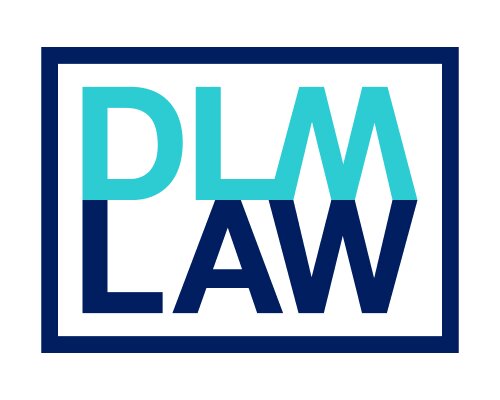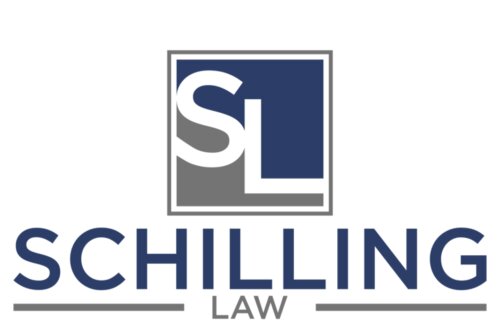Best Business Lawyers in Kansas
Share your needs with us, get contacted by law firms.
Free. Takes 2 min.
Or refine your search by selecting a city:
List of the best lawyers in Kansas, United States
United States Business Legal Questions answered by Lawyers
Browse our 1 legal question about Business in United States and read the lawyer answers, or ask your own questions for free.
- How do I legally protect my idea before selling or licensing it to a company?
- I have a makeup product idea that I want to sell or license, not the product itself. It is influenced by a product that was recently launched. Therefore, I want to sell/license to the company that launched said product. After some research, I contacted a patent attorney who explained that... Read more →
-
Lawyer answer by P.O OHIKHENA & Co
Good day,A patent will not be applicable since it's still an idea. You can go into an MOU(Memorandum of understanding) with the said company and also an NDA.You can contact me for my insight. Visit our profile and send us...
Read full answer
United States Business Legal Articles
Browse our 2 legal articles about Business in United States written by expert lawyers.
- NY 2026 Corp Tax: Thresholds & Franchise
- For tax years beginning on or after January 1, 2026, New York businesses will only be required to make estimated tax payments if their expected New York tax (including any MTA surcharge) is at least $5,000, up from $1,000. Many small and some mid-sized New York corporations and S corporations... Read more →
- Texas AI Compliance 2026 United States Data Privacy Rules
- By 2026, Texas agencies and many businesses that build, host, or support AI tools for government or consumer-facing decisions will face stricter disclosure and anti-discrimination requirements. Texas is pairing its new data privacy framework (Texas Data Privacy and Security Act) with AI-specific rules that target "algorithmic discrimination" in areas like... Read more →
About Business Law in Kansas, United States
Business law in Kansas encompasses the collection of state and federal laws and regulations that govern how businesses are formed, operated, and dissolved within the state. Kansas offers entrepreneurs and established business owners a diverse commercial environment, from small local enterprises to large agricultural, manufacturing, and service-based companies. Whether you are starting a business, expanding an existing one, or handling day-to-day operations, understanding the legal landscape is key to maintaining compliance and avoiding disputes.
Why You May Need a Lawyer
There are many circumstances in which individuals or companies may require legal help regarding business matters in Kansas. Common situations include:
- Choosing the right business structure (such as LLC, corporation, or partnership) and filing formation documents
- Drafting, reviewing, or negotiating business contracts and agreements
- Handling disputes with partners, employees, customers, or vendors
- Protecting intellectual property, including trademarks or copyrights
- Navigating employment laws and addressing workplace issues
- Ensuring compliance with state and federal regulations
- Managing mergers, acquisitions, or business sales
- Dealing with tax matters and financial obligations
- Responding to lawsuits or government investigations
- Closing or dissolving a business properly
Having an experienced business lawyer can help you avoid common pitfalls, streamline your operations, and protect your interests at every stage of your business journey.
Local Laws Overview
Kansas business law is shaped by state statutes, administrative regulations, and relevant federal laws. Key aspects that business owners should be aware of include:
- Business Formation and Registration: Kansas businesses must register with the Kansas Secretary of State. Different structures, including corporations, limited liability companies, and partnerships, have specific filing requirements and ongoing obligations.
- Licensing and Permits: Many businesses require local or state licenses, depending on the industry. This includes health permits, liquor licenses, and professional certifications.
- Employment Law: Kansas follows both federal and state employment laws on matters like minimum wage, anti-discrimination, workplace safety, and workers compensation. Employers must comply with the Kansas Wage Payment Act and other local standards.
- Contracts: Kansas contract law governs how agreements are created and enforced. Written contracts are essential for most significant transactions.
- Taxes: Businesses must follow Kansas Department of Revenue regulations for sales tax, use tax, and state income tax, in addition to federal tax obligations.
- Land Use and Zoning: Local ordinances may restrict where and how businesses can operate. Zoning compliance can affect construction, expansion, or use of commercial property.
- Consumer Protection: The Kansas Consumer Protection Act provides safeguards against unfair business practices, deceptive advertising, and fraud.
Staying informed about these and other local legal requirements helps ensure your business operates smoothly and lawfully.
Frequently Asked Questions
What is the best business structure for my company in Kansas?
The ideal business structure depends on your goals, number of owners, tax preferences, and liability concerns. Common types include sole proprietorship, partnership, limited liability company (LLC), and corporation. Consulting a legal or financial professional can help you decide.
How do I register a new business in Kansas?
Most businesses must file formation documents with the Kansas Secretary of State, obtain an Employer Identification Number (EIN) from the IRS, and register for any required state or local licenses.
Do I need a business license to operate in Kansas?
Some businesses in Kansas require state or local licenses, depending on the industry and location. For example, restaurants, contractors, and certain professionals need specific permits.
What laws cover employment in Kansas?
Kansas businesses must comply with both federal and state employment laws, including wage and hour laws, anti-discrimination statutes, workers compensation, unemployment insurance, and workplace safety rules.
How do I protect my business's intellectual property in Kansas?
You can register trademarks at the federal or Kansas state level, protect copyrightable materials under federal law, and guard trade secrets through confidentiality agreements and internal policies.
What are my tax obligations as a Kansas business owner?
You may need to pay state income tax, sales and use tax, and possibly special industry taxes. State tax registration is handled by the Kansas Department of Revenue, in addition to any federal requirements.
What can I do if I have a business dispute with another party?
Many business disputes can be resolved through negotiation or mediation. If these do not work, you may need to pursue arbitration or litigation in court. A business lawyer can guide you through the process.
How are contracts enforced in Kansas?
Kansas enforces valid written and oral contracts, but written contracts are recommended. If a party does not honor a contract, the other party may seek damages or other remedies through the courts.
How do I legally close or dissolve my Kansas business?
Businesses must follow dissolution procedures, which may include filing articles of dissolution with the Secretary of State, notifying creditors, settling debts, and distributing remaining assets.
Where can I find more information about starting or running a business in Kansas?
The Kansas Secretary of State, Kansas Department of Revenue, and local chambers of commerce are excellent starting points for business resources and legal guidance.
Additional Resources
Several organizations and government agencies offer assistance for businesses in Kansas:
- Kansas Secretary of State: Offers business registration, forms, and entity information
- Kansas Department of Revenue: Handles business tax registration and guidance
- Kansas Small Business Development Center (SBDC): Provides free business counseling and training
- Kansas Department of Labor: Information on employment laws, workers compensation, and workplace safety
- Local chambers of commerce: Networking, advocacy, and educational resources for business owners
- Small Business Administration (SBA) Kansas District Office: Business loans, counseling, and federal resources
Next Steps
If you need legal assistance regarding business matters in Kansas, consider the following steps:
- Gather relevant documents such as business formation papers, contracts, tax filings, and correspondence.
- Identify the specific issue or question you need help with, such as formation, contract review, or dispute resolution.
- Reach out to a qualified Kansas business law attorney or seek guidance from the Kansas Bar Association's lawyer referral service.
- Take advantage of available state and local resources to supplement your understanding and support your business's success.
- Stay proactive about compliance to avoid legal issues in the future.
Taking these steps will help you find sound legal advice and build a strong foundation for your business in Kansas.
Lawzana helps you find the best lawyers and law firms in Kansas through a curated and pre-screened list of qualified legal professionals. Our platform offers rankings and detailed profiles of attorneys and law firms, allowing you to compare based on practice areas, including Business, experience, and client feedback.
Each profile includes a description of the firm's areas of practice, client reviews, team members and partners, year of establishment, spoken languages, office locations, contact information, social media presence, and any published articles or resources. Most firms on our platform speak English and are experienced in both local and international legal matters.
Get a quote from top-rated law firms in Kansas, United States — quickly, securely, and without unnecessary hassle.
Disclaimer:
The information provided on this page is for general informational purposes only and does not constitute legal advice. While we strive to ensure the accuracy and relevance of the content, legal information may change over time, and interpretations of the law can vary. You should always consult with a qualified legal professional for advice specific to your situation.
We disclaim all liability for actions taken or not taken based on the content of this page. If you believe any information is incorrect or outdated, please contact us, and we will review and update it where appropriate.
Browse business law firms by service in Kansas, United States
Kansas, United States Attorneys in related practice areas.
Browse business law firms by city in Kansas
Refine your search by selecting a city.
















